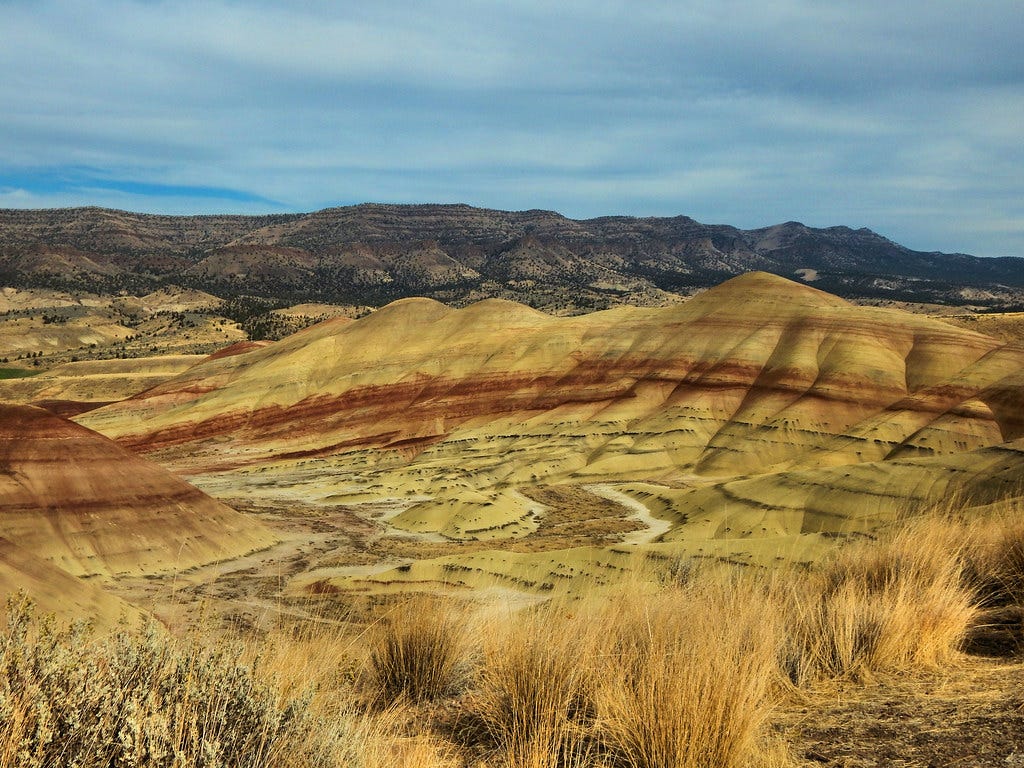
Editor’s Note:
I’ve seen my fair share of TV during the pandemic. My favorite series? Undoubtedly, Ted Lasso. It’s the tale of an American football coach crossing the pond to manage an English football team. From the premise, you can tell the show is meant to be full of shenanigans and humor. And it is.
But the introduction of a Kansan to Londoners has a deeper message: be curious.
Coach Lasso is able to navigate a very different culture by virtue of exercising curiousity. He humbly and respectfully asks questions of just about everyone he encounters. Whether it’s the rules of soccer or the difference between chips and crisps, Lasso is quick to admit what he doesn’t know and to seek the information required to answer his many questions.
If there’s one lesson I’ve learned editing The Oregon Way, it’s to be curious. I don’t always practice this sort of patience and thoughtfulness. At times, when editing a piece, I’ve tried to fill in ambiguity or correct what I assumed was an omission. The result of my clumsy and hasty review? A rightfully skeptical response from contributors. After all, all I had to do was ask…
Being curious is a lot harder than the alternative, which Lasso states is “judgment.” Judging is easy because it doesn’t require verifying your assumptions nor questioning your conclusions. Perhaps the ease of judging explains why social media tends to allow more for judging, than being curious.
As I strive to be more curious, I hope you all will similarly approach each of these posts with a willingness to ask questions of yourself and of the author.
To a better Oregon,
Kevin
To welcome and look forward to:
State Sen. Jeff Golden joined as a contributor.
Andrew Kalloch is working on a great piece related to sacrifice.
To do:
Friends don’t let friends miss The Oregon Way. Share this with three buddies!
Send potential contributors and feedback to Kevin (kfraz@berkeley.edu).
To read:
Politics may have seasons, but engagement needs to be year-round and lifelong. Learn more from Jim Moore.
But the key to it all is the public wanting to engage, wanting to pay attention, wanting to play a role aside from casting a ballot every couple of years. In the past, Oregon and the United States had very low voter engagement levels, then they got higher and higher. We are now in a 60+-year slow decline. Will it take some kind of crisis to drive people to pay attention?
What’s the significance of the losses we’ve all experienced this year in shaping meaning? Learn from Adam Davis’s most recent piece:
If we give ourselves the time and space to take seriously what was absent this past year, what we lost this past year, then we ought to be able to direct our politics in a more meaningful direction. I have my own sense of what was absent and what was lost, as I would imagine we all do, both in the political realm and in the personal realm. How then can we consider these losses and absences together—not only in the making of policy, but also in the making of meaning, through stories about the past and commitments for the future?
The entirety of Rediscovering the Oregon Way, by Kevin Frazier, is available here:
The Oregon Way contributes little to the state if it does more to divide than to unite. A trail is nothing if it does not bring a diverse range of people on it and a Way has an even higher standard than merely directing people—it must bring people together and motivate them to take action. Presently, people are neither together nor commonly motivated. A Way is forged with consensus and there are few widely-held views in modern times. Reaching this level of agreement is possible by the serial use of the trail by a variety of individuals all consenting to walk at a similar pace toward a common destination; forks off the Way are usually forged hastily and by just a few people.
McCall’s Oregon Family can be re-established. Getting the family back together will challenge us all to find shared values, to consent to certain norms, to secure the independence of our social institutions, and to participate in and push for open democratic processes.
Melissa Cribbins celebrates the little things that propel local government to solve problems in a civil and collaborative manner.
In spite of all of this, and in spite of very different political opinions, my fellow commissioners and I work closely together to balance our budget. In an era of partisan infighting, local government remains the one place where politicians of different parties come together and talk about the things that really matter to our constituents. So many of the decisions that we make impact people in their everyday life, and we are the ones that have to look people in the eye and explain why we chose not to fund certain services.
Eric Ward reflects on a year of COVID-19. He reveals that though progress has been made on some fronts, we’ve yet to reach an inflection point toward truly making Oregon more inclusive and responsive to the needs of all communities:
I’d like to hear more voices like Baker City’s Ginger L. Savage’s whose COVID-19 losses may “have been relatively remote” but who nevertheless mourn the deep injury to the “‘Social Contract’ at the heart of our democracy and communities.” I join Ginger in saying, “Here’s to finding remedies and resolving to uphold our obligations to one another as friends, community members, and Oregonians” – all Oregonians.



